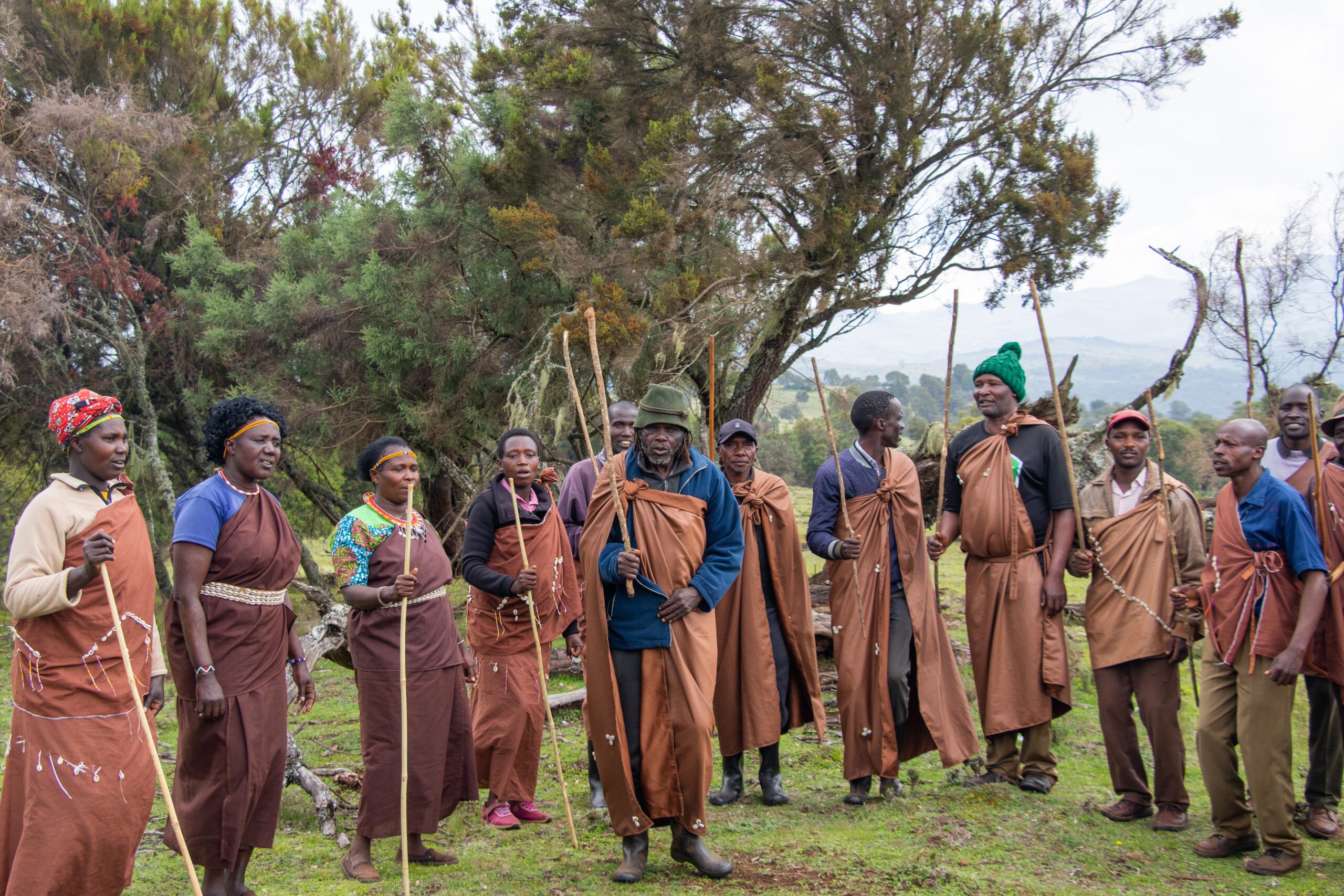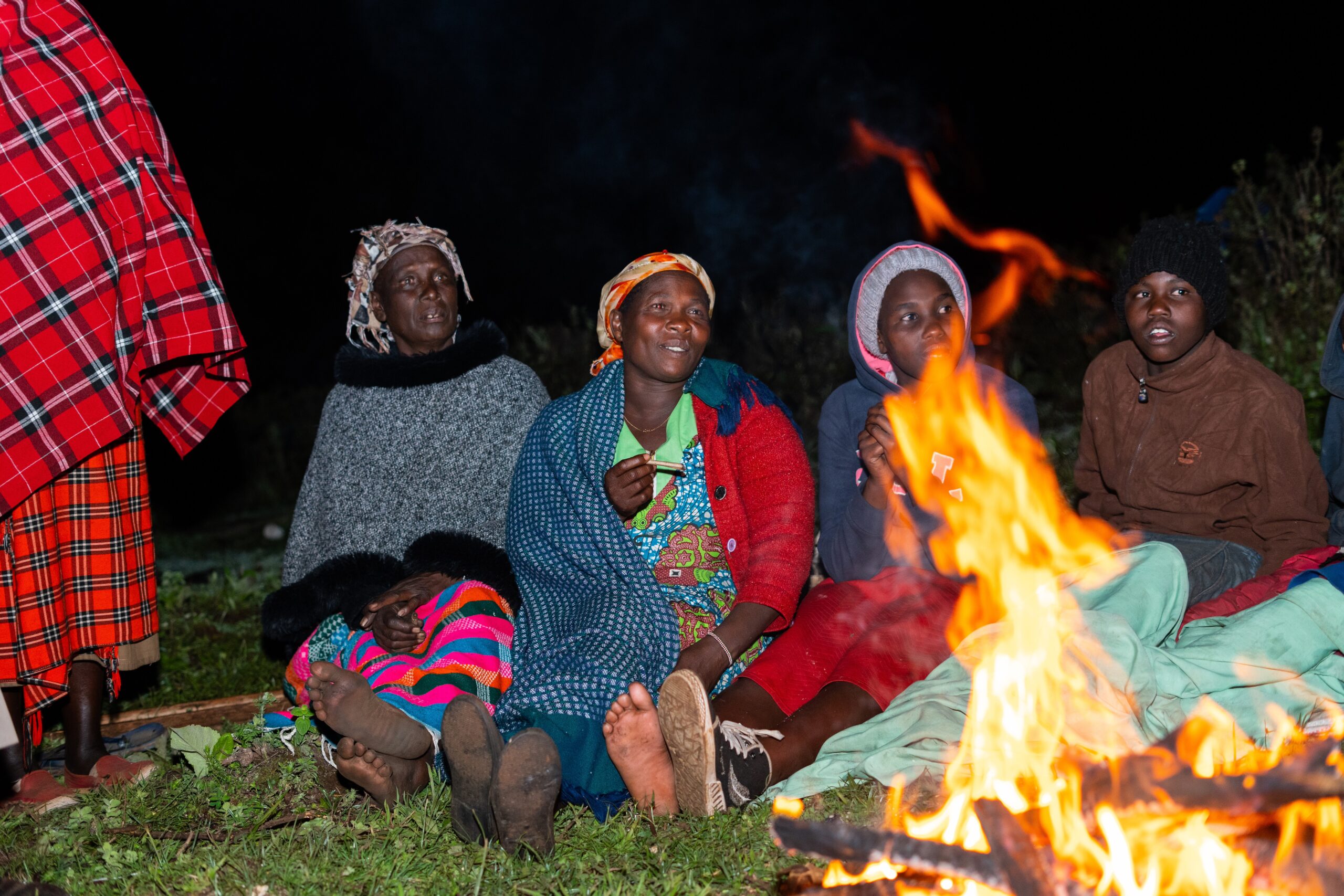2023-12-25
Seated by a crackling fire burning during an inky night, community elder Cosmas Murunga shares some advice to his audience of young listeners.
“As you grow up, women might get married outside of the community. But they shouldn’t forget where they came from,” he says. “And you young men, as you grow, know that you will inherit the ways of your fathers, grandfathers and those of your ancestors.”
Nestled in the Kenyan highlands near the Ugandan boarder, the Ogiek of Chepkitale have lived in the moorlands and forests around Mount Elgon for generations. Traditional hunter-gathers, they collected honey from wild bees, used surrounding caves that pockmark the landscape and intertwined their lives and culture with their land.
But, since the days of colonial occupation, the Ogiek have seen the need for conservation trump their ancestral rights. Over the years they have faced or been forcefully evicted as authorities allege removing Indigenous Peoples is the best way to protect forests.
“When the colonialist came, they introduced many boundaries and pushed us west towards the sunset, which is a curse in our culture,” Cosmas Murunga explains.

Jackie Lebo/Content House Kenya
It is this story of the Ogiek’s struggle for land rights that is the focus of a recent short film. Backed in part by Tenure Facility, the movie is part of the Solutions Storytelling Project, a Skoll Foundation-supported initiative from the Video Consortium that connects filmmakers and social innovators to produce solutions-focused short documentaries that catalyse positive change.
Kenyan director Jackie Lebo says the film shows the importance collective action can play in managing resources and adds that the crew developed a close relationship with the Ogiek community before filming even began.
“We sit down. We find out what’s important to them,” she says. “We looked for the best storyteller so that they can be a vehicle to tell the community’s stories.”
Lebo is particularly fond of the campfire scene where young community members get to hear from their elder about the importance of caring for their territory.

For Peter Kitelo, executive director of the Chepkitale Indigenous People’s Development Project, a Tenure Facility partner, the film takes on a deeper meaning. It is his community, language (Kony) and traditional songs that are featured in the film. And their active involvement and consent in the project was paramount.
“Normally people want to come and film and they just come and film,” he says “But this was different because we discussed what do we want and how will it go. … They also took time to talk to people.”
The community was also given a chance to review the documentary before its release and suggest editorial changes. A special version without English subtitles was also made for the Ogiek.
In addition to this, Kitelo and others fought a decades-long court battle on behalf of the Ogiek of Mt. Elgon that culminated with a legal victory in 2022 at the Kenyan High Court. In it, the court ruled that a national reserve carved out of the Ogiek’s land was unconstitutional and unlawful, and the territory it should return to its original status.
Despite the win, the Ogiek of Mt. Elgon still face an uncertain future. But as Cosmas Murunga says at the film’s end: “My dream is to wake up to find that the land belongs to us and that the trees, animals and all living creatures cohabiting in the forest are being taken care of. And the land will be left as God created it.”
Articles